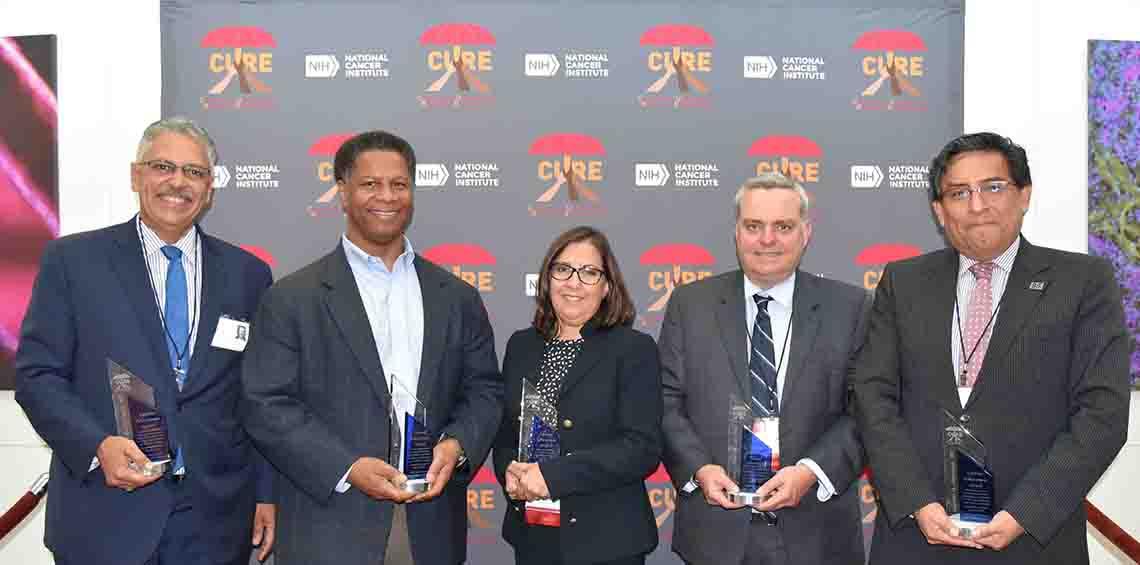NCI’s CURE Program Marks 21 Years

Shaping the biomedical workforce to ensure it reflects our nation’s growing diversity has been at the forefront of NCI’s Center to Reduce Cancer Health Disparities (CRCHD) Continuing Umbrella of Research Experiences (CURE) program efforts for more than two decades. In recognition, CRCHD is celebrating the CURE program’s 21st anniversary this year.
Established in 1996, CURE is a unique holistic training and career development strategy and philosophy that provides support at every point in a career, reaching all the way back to middle school and continuing until the independent cancer researcher level. CURE provides a smooth, continuous path to a career in cancer and cancer health disparities research and has proven to be successful at building a cadre of competitive underrepresented minority cancer researchers.
CURE’s pipeline approach is critically important to engaging some of the nation’s most talented students—those from backgrounds typically underrepresented in research.
To date, CURE has supported more than 3,000 students, postdocs and early-stage investigators.
CRCHD hosted “Celebrating 21 Years of the CURE Program” recently at Natcher Conference Center to honor the work of 26 of CURE’s most accomplished scholars, mentors and champions.
“CURE is an extraordinary program because of our scholars and those who support it,” said Dr. Sanya Springfield, CRCHD director. “This celebration was a way to recognize notable CURE honorees who represent the best of those who make the CURE program so special.”
Honorees included investigators from the early stages of the CURE pipeline to those who have made a significant impact in the fields of cancer and cancer health disparities research over the course of their careers, as well as mentors and champions.
“The CURE program is a truly unique program where students, investigators, mentors and program directors work in collaboration, with the purpose of advancing cancer research and career development. It was a wonderful celebration,” said CRCHD deputy director Dr. H. Nelson Aguila.
Also attending were about 25 special guests, the UMB CURE Scholars. This CURE-supported program identifies promising middle school students in Baltimore and prepares them for careers in health care and research through hands-on workshops, lab experiences and mentorship.
Dr. Jay Perman, president, University of Maryland, Baltimore, spoke about how CURE is influencing the UMB CURE Scholars Program.
The celebration continued the next day, with the first CURE Distinguished Scholars Seminar. This semi-annual seminar series recognizes former CURE scholars who are making seminal contributions to the fields of cancer and cancer health disparities research.
The inaugural guest speaker was Dr. Lewis R. Roberts, Peter and Frances Georgeson professor in gastroenterology cancer research at the Mayo Clinic in Rochester, Minn. Roberts shared a personal account of what led him to his career in researching the mechanisms of liver and biliary carcinogenesis as well as his work with the diagnosis and treatment of hepatitis and liver cancer in immigrant African and U.S. communities.
“Dr. Roberts set a wonderful precedent for this new seminar series,” said Springfield. “His passion has clearly contributed to the success of his transformative research.”
To watch the celebration online, visit https://www.cancer.gov/about-nci/organization/crchd/diversity-training/cure/honors.
For more information about CRCHD and CURE, visit crchd.cancer.gov.
